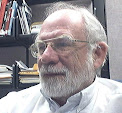Monday, March 22, 2010
3.23.2010 pm9k Lawn
A new and different way to provide data, which could be used for sets of maps, besides buildings and landscapes - encourages one to participate and experiment and try different things. This comparison opens up all sorts of possibilities - comparing the structure of 3 poems, or like Blake, 3 paintings - or landscapes, buildings, maps, anything of a set of types. Some of the three in each set seem to have some comparability, others do not - so is this a good way to organize and categorize sets? - could one use it to view and compare three Mesoamerican tripods, or stick figures, or drinking vessels? I like the controls and the simple way the buttons are placed for resizing, moving, rotating, and strength of image. Is there anything that should be added to the controls, etc?
Labels:
comparisons,
controls,
manipulating images,
sets of types,
unguided
Monday, March 15, 2010
3.16.2010 pm9k Salem Witches
Ray's three articles, each focusing on a different perspective of the same events, town, and time, are very interesting, especially the maps that he develops, along with challenging the older theories and interpretations. Like my earlier comments on the articles and the web site - I feel the inclusion online of all of these (the articles and the maps) would make the web site far better and useful.
Which probably raises the question, as with other web sites and projects - how much do you include, or how much can you, even for a limited thematic digital collection such as the Salem Witch Trials? The web site also seems to have been used for Ray's classes, and it would be nice to include even more of the writings of students, and contributions, suggestions, feedback from them - as they were written during the class and as the archive grows over time.
It takes lots of time, money, people to continue to change and grow a web site, as seen in the Valley of the Shadow, Rossetti Archive, and Dante database - and even takes lots to just update such projects. Does it matter if their growth ends, and that links and sources continue to fall off and die, and not be re-reborn or corrected?
Which probably raises the question, as with other web sites and projects - how much do you include, or how much can you, even for a limited thematic digital collection such as the Salem Witch Trials? The web site also seems to have been used for Ray's classes, and it would be nice to include even more of the writings of students, and contributions, suggestions, feedback from them - as they were written during the class and as the archive grows over time.
It takes lots of time, money, people to continue to change and grow a web site, as seen in the Valley of the Shadow, Rossetti Archive, and Dante database - and even takes lots to just update such projects. Does it matter if their growth ends, and that links and sources continue to fall off and die, and not be re-reborn or corrected?
Labels:
articles,
databases,
final installment,
growth,
maps,
online,
Salem Witches
Monday, March 1, 2010
3.2.2010 pm9k computer is a metaphor
The readings and websites this week (Mind is a metaphor) take me to a middle ground between complex and static websites (Blake, Rossetti, etc) and web sites that continue to evolve, especially based on contributions by anyone, adding and 'teaching' web sites or the machine, closing in on gaming software and artificial intelligence programs. All three types of web sites perhaps have their own uses and purposes (static, growing, and evolving / learning). Some of the ways to construct databases and develop interfaces seem fairly simple, others seem huge and very complex. Some might be developed by individuals; others need teams of people, changing and evolving over time. Pasanek and others provide a good example of how computers might be used and taught to do some complex functions fairly quickly, which would otherwise (without computers) take huge amounts of time. Computers can be used as appendages to our minds.
Labels:
artificial intelligence,
databases,
interfaces,
learning,
metaphor,
mind,
Pasanek,
teaching,
the machine
Subscribe to:
Comments (Atom)
